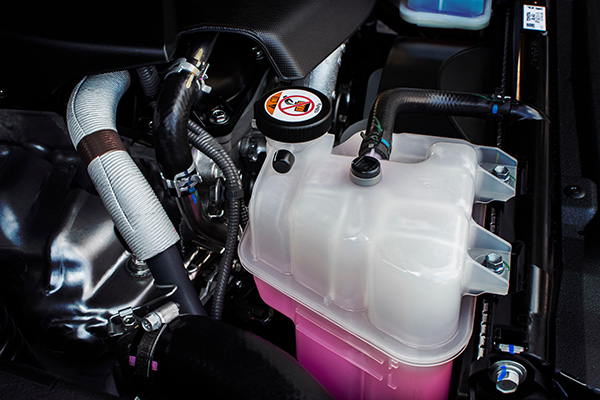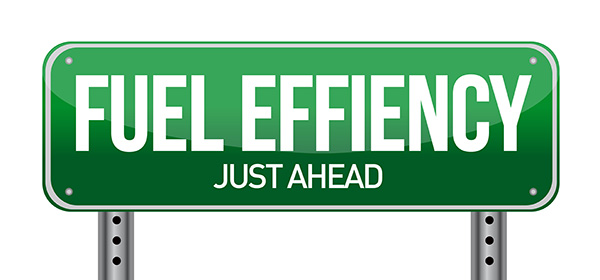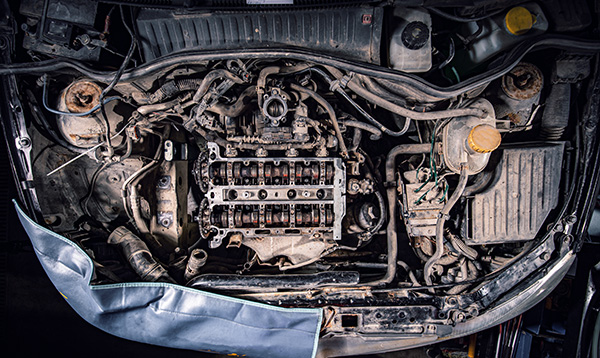Posted on 1/30/2026

Coolant is one of those fluids most drivers never think about until something feels off. Maybe the reservoir line looks a little lower than you remember, or you get a low coolant message that disappears after you top it off once. The big question is whether this is normal aging or a sign that something is leaking or burning off. A small drop can happen, but coolant is not supposed to vanish like windshield washer fluid, so it is worth knowing where the line is between normal and not normal. What Coolant Does And Why The System Should Stay Full Coolant carries heat away from the engine, protects against freezing, and helps prevent corrosion inside the cooling system. It also relies on pressure to work correctly. The cooling system is designed to be sealed, meaning coolant should circulate, heat up, cool down, and return to the same level without needing regular top-offs. If the level is dropping repeatedly, the system is losing coolant somewhere. It migh ... read more
Posted on 12/19/2025

New Year’s Eve is meant to be a celebration, but it is also one of the trickiest nights of the year to be behind the wheel. Traffic patterns change, more people are out late, and some drivers make poor decisions after drinking or staying up too long. If you are the one driving, a few practical habits and a bit of planning can lower your risk and keep the focus on the celebration, not on a roadside emergency. Why New Year’s Eve Driving Feels Different Holiday driving late at night has its own set of challenges. Many drivers on the road may not be used to driving in the dark, and some are distracted by phones or excited passengers. You can also run into wet, icy, or foggy conditions that change quickly as temperatures drop. That mix of reduced visibility and distracted or impaired drivers means you have to leave more space, scan farther ahead, and expect the unexpected. Common Mistakes Drivers Make on New Year’s Eve A lot of troubl ... read more
Posted on 11/28/2025

Volvo’s air suspension delivers a calm, level ride when it is healthy. When it is not, the car can sit low on one corner, ride harshly, or cycle the compressor so often that it feels like something is always wrong. If you have repaired one part only to see a new warning a few weeks later, you are not alone. Air systems have several pieces working together, and small leaks or control issues can make good parts look bad. How Volvo Air Suspension Works Instead of steel springs, each corner uses an air spring that inflates to hold the vehicle at a set height. A compressor fills a reservoir, valves route air to each spring, and height sensors tell the control module where the body sits. The system adjusts for passengers, cargo, and road conditions so the car stays level and stable. When everything is sealed and calibrated, the ride is smooth and the body stays flat in corners. Common Failure Points in Volvo Air Systems Air springs age as rubber ... read more
Posted on 10/31/2025

You know your car pretty well. So when you notice you’re stopping for gas more often than usual, it’s usually not your imagination. A sudden drop in fuel economy is your car’s way of telling you that something isn’t running quite right. Even small changes under the hood can throw off your miles per gallon. The good news is that most of the causes are easy for a technician to pinpoint and fix once you know where to look. Fuel System Problems When fuel efficiency drops, the fuel system is usually the first place we check. Dirty or clogged fuel injectors can throw off the air-fuel balance, causing uneven combustion. That means your engine burns more gas just to maintain normal performance. A weak fuel pump or a faulty pressure regulator can do the same thing. Too much fuel means waste, while too little makes the engine work harder. Replacing a clogged fuel filter, cleaning the injectors, or correcting pressure issues often brings mi ... read more
Posted on 9/26/2025

When your engine starts showing signs of serious trouble like knocking noises, low oil pressure, metal in the oil, or repeated overheating, you’re left with a big decision. Do you replace the engine entirely, or rebuild the one already in your vehicle? Both options can get your car running again, but they come with different costs, benefits, and long-term implications. Here’s a breakdown of what each option involves and how to decide which is best for your situation. What Does an Engine Rebuild Involve Rebuilding an engine means restoring your existing engine to good working condition. This involves disassembling the engine, inspecting each component, replacing worn parts, and reassembling it to factory specifications. Common components replaced in a rebuild include: Pistons and piston rings Bearings Gaskets and seals Timing co ... read more